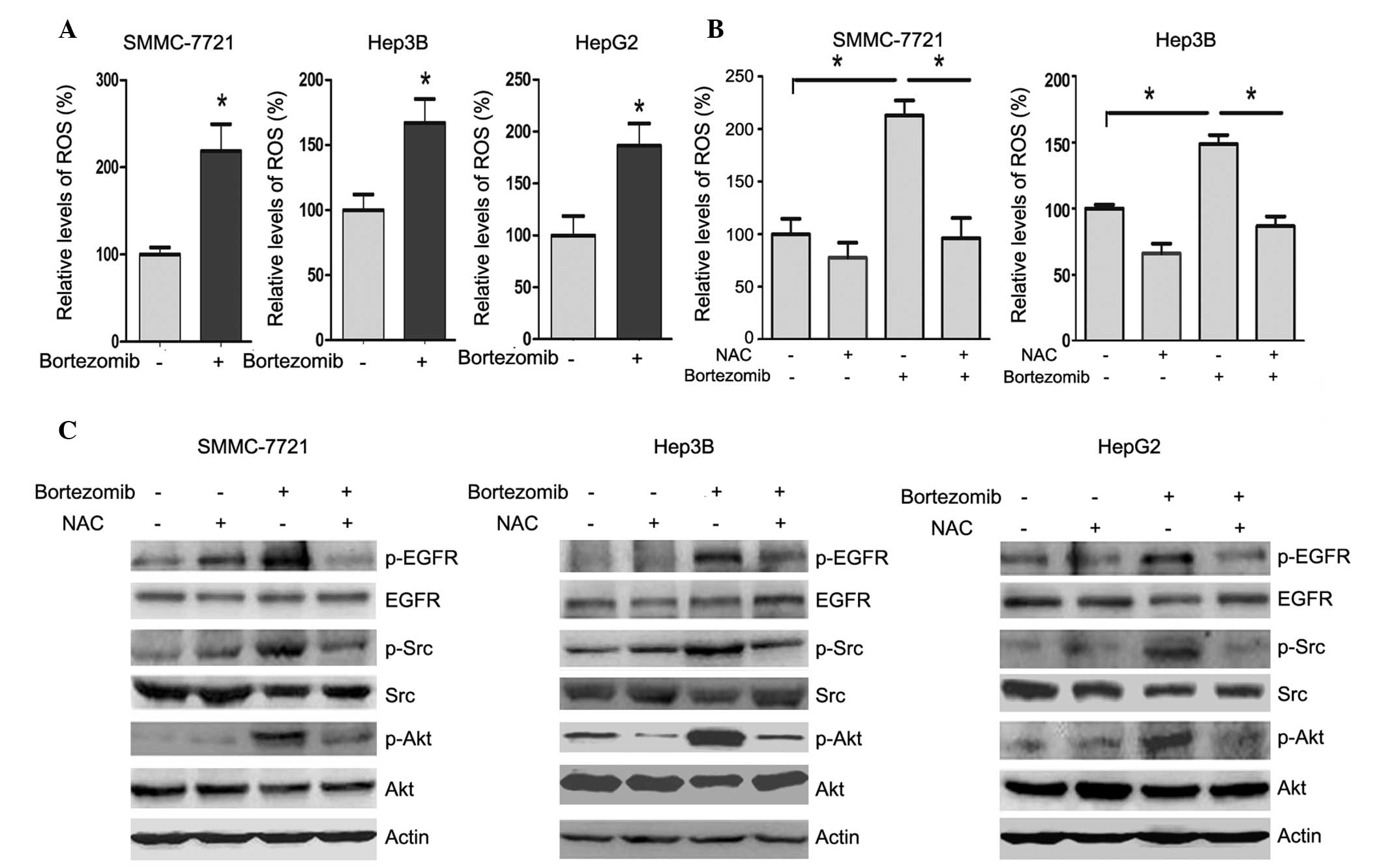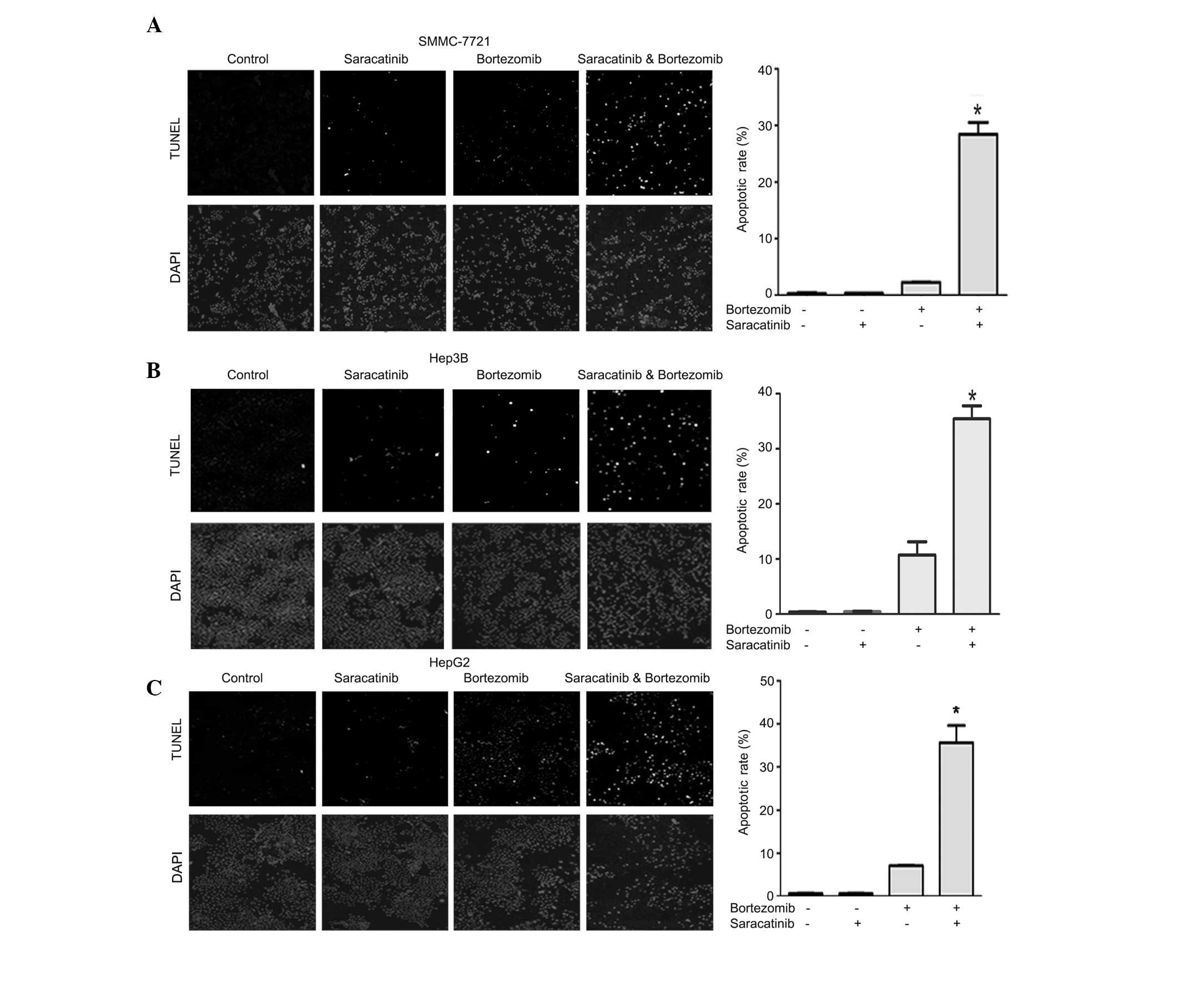|
1
|
Walz J, Erdmann A, Kania M, Typke D,
Koster AJ and Baumeister W: 26S proteasome structure revealed by
three-dimensional electron microscopy. J Struct Biol. 121:19–29.
1998. View Article : Google Scholar : PubMed/NCBI
|
|
2
|
Kim HM, Yu Y and Cheng Y: Structure
characterization of the 26S proteasome. Biochim Biophys Acta.
1809:67–79. 2011. View Article : Google Scholar : PubMed/NCBI
|
|
3
|
Pickart CM and Eddins MJ: Ubiquitin:
structures, functions, mechanisms. Biochim Biophys Acta.
1695:55–72. 2004. View Article : Google Scholar : PubMed/NCBI
|
|
4
|
Pereira SG and Oakley F: Nuclear
factor-κB1: regulation and function. Int J Biochem Cell Bio.
40:1425–1430. 2008.
|
|
5
|
Zhang M, Pickart CM and Coffino P:
Determinants of proteasome recognition of ornithine decarboxylase,
a ubiquitin-independent substrate. EMBO J. 22:1488–1496. 2003.
View Article : Google Scholar : PubMed/NCBI
|
|
6
|
Tsvetkov P, Reuven N and Shaul Y:
Ubiquitin-independent p53 proteasomal degradation. Cell Death
Differ. 17:103–108. 2010. View Article : Google Scholar : PubMed/NCBI
|
|
7
|
Lee YS, Wan J, Kim BJ, Bae MA and Song BJ:
Ubiquitin-dependent degradation of p53 protein despite
phosphorylation at its N terminus by acetaminophen. J Pharmacol Exp
Ther. 317:202–208. 2006. View Article : Google Scholar : PubMed/NCBI
|
|
8
|
Jariel-Encontre I, Bossis G and Piechaczyk
M: Ubiquitin-independent degradation of proteins by the proteasome.
Biochim Biophys Acta. 1786:153–177. 2008.PubMed/NCBI
|
|
9
|
Papandreou CN and Logothetis CJ:
Bortezomib as a potential treatment for prostate cancer. Cancer
Res. 64:5036–5043. 2004. View Article : Google Scholar : PubMed/NCBI
|
|
10
|
Richardson PG and Anderson KC: Bortezomib:
a novel therapy approved for multiple myeloma. Clin Adv Hematol
Oncol. 1:596–600. 2003.PubMed/NCBI
|
|
11
|
O’Connor OA: Marked clinical activity of
the proteasome inhibitor bortezomib in patients with follicular and
mantle-cell lymphoma. Clin Lymphoma Myeloma. 6:191–199. 2005.
|
|
12
|
Ko BS, Chang TC, Chen CH, et al:
Bortezomib suppresses focal adhesion kinase expression via
interrupting nuclear factor-kappa B. Life Sci. 86:199–206. 2010.
View Article : Google Scholar : PubMed/NCBI
|
|
13
|
Lara PN Jr, Davies AM, Mack PC, et al:
Proteasome inhibition with PS-341 (bortezomib) in lung cancer
therapy. Semin Oncol. 31:40–46. 2004. View Article : Google Scholar : PubMed/NCBI
|
|
14
|
Chen KF, Yeh PY, Yeh KH, Lu YS, Huang SY
and Cheng AL: Downregulation of phospho-Akt is a major molecular
determinant of bortezomib-induced apoptosis in hepatocellular
carcinoma cells. Cancer Res. 68:6698–6707. 2008. View Article : Google Scholar : PubMed/NCBI
|
|
15
|
Lin YC, Chen KC, Chen CC, Cheng AL and
Chen KF: CIP2A-mediated Akt activation plays a role in
bortezomib-induced apoptosis in head and neck squamous cell
carcinoma cells. Oral Oncol. 48:585–593. 2012. View Article : Google Scholar : PubMed/NCBI
|
|
16
|
McCubrey JA, Steelman LS, Abrams SL, et
al: Roles of the RAF/MEK/ERK and PI3K/PTEN/AKT pathways in
malignant transformation and drug resistance. Adv Enzyme Regul.
46:249–279. 2006. View Article : Google Scholar : PubMed/NCBI
|
|
17
|
Haynes MP, Li L, Sinha D, et al: Src
kinase mediates phosphatidylinositol 3-kinase/Akt-dependent rapid
endothelial nitric-oxide synthase activation by estrogen. J Biol
Chem. 278:2118–2123. 2003. View Article : Google Scholar : PubMed/NCBI
|
|
18
|
Mao W, Irby R, Coppola D, et al:
Activation of c-Src by receptor tyrosine kinases in human colon
cancer cells with high metastatic potential. Oncogene.
15:3083–3090. 1997. View Article : Google Scholar : PubMed/NCBI
|
|
19
|
Yang F, Jove V, Chang S, et al: Bortezomib
induces apoptosis and growth suppression in human medulloblastoma
cells, associated with inhibition of AKT and NF-κB signaling and
synergizes with an ERK inhibitor. Cancer Biol Ther. 13:349–357.
2012.PubMed/NCBI
|
|
20
|
Markovic SN, Geyer SM, Dawkins F, et al: A
phase II study of bortezomib in the treatment of metastatic
malignant melanoma. Cancer. 103:2584–2589. 2005. View Article : Google Scholar : PubMed/NCBI
|
|
21
|
Vivanco I and Sawyers CL: The
phosphatidylinositol 3-kinase AKT pathway in human cancer. Nat Rev
Cancer. 2:489–501. 2002. View
Article : Google Scholar : PubMed/NCBI
|
|
22
|
Hay N: The Akt-mTOR tango and its
relevance to cancer. Cancer Cell. 8:179–183. 2005. View Article : Google Scholar : PubMed/NCBI
|
|
23
|
Junttila MR, Puustinen P, Niemelä M, et
al: CIP2A inhibits PP2A in human malignancies. Cell. 130:51–62.
2007. View Article : Google Scholar : PubMed/NCBI
|
|
24
|
Chen K, Liu C, Lin Y, et al: CIP2A
mediates effects of bortezomib on phospho-Akt and apoptosis in
hepatocellular carcinoma cells. Oncogene. 29:6257–6266. 2010.
View Article : Google Scholar : PubMed/NCBI
|
|
25
|
An J and Rettig MB: Epidermal growth
factor receptor inhibition sensitizes renal cell carcinoma cells to
the cytotoxic effects of bortezomib. Mol Cancer Ther. 6:61–69.
2007. View Article : Google Scholar : PubMed/NCBI
|
|
26
|
Lorch JH, Thomas TO and Schmoll HJ:
Bortezomib inhibits cell-cell adhesion and cell migration and
enhances epidermal growth factor receptor inhibitor-induced cell
death in squamous cell cancer. Cancer Res. 67:727–734. 2007.
View Article : Google Scholar : PubMed/NCBI
|
|
27
|
Codony-Servat J, Tapia MA, Bosch M, et al:
Differential cellular and molecular effects of bortezomib, a
proteasome inhibitor, in human breast cancer cells. Mol Cancer
Ther. 5:665–675. 2006. View Article : Google Scholar : PubMed/NCBI
|
|
28
|
Sloss CM, Wang F, Liu R, et al: Proteasome
inhibition activates epidermal growth factor receptor (EGFR) and
EGFR-independent mitogenic kinase signaling pathways in pancreatic
cancer cells. Clin Cancer Res. 14:5116–5123. 2008. View Article : Google Scholar
|
|
29
|
Cascone T, Morelli MP, Morgillo F, et al:
Synergistic anti-proliferative and pro-apoptotic activity of
combined therapy with bortezomib, a proteasome inhibitor, with
anti-epidermal growth factor receptor (EGFR) drugs in human cancer
cells. J Cell Physiol. 216:698–707. 2008. View Article : Google Scholar
|
|
30
|
Wilhelm SM, Adnane L, Newell P, Villanueva
A, Llovet JM and Lynch M: Preclinical overview of sorafenib, a
multikinase inhibitor that targets both Raf and VEGF and PDGF
receptor tyrosine kinase signaling. Mol Cancer Ther. 7:3129–3140.
2008. View Article : Google Scholar : PubMed/NCBI
|
|
31
|
Chen KF, Yu HC, Liu TH, Lee SS, Chen PJ
and Cheng AL: Synergistic interactions between sorafenib and
bortezomib in hepatocellular carcinoma involve PP2A-dependent Akt
inactivation. J Hepatol. 52:88–95. 2010. View Article : Google Scholar : PubMed/NCBI
|
|
32
|
Saad F and Lipton A: SRC kinase
inhibition: targeting bone metastases and tumor growth in prostate
and breast cancer. Cancer Treat Rev. 36:177–184. 2010. View Article : Google Scholar : PubMed/NCBI
|
|
33
|
Martinez Flores K, Uribe Marin BC, Souza
Arroyo V, et al: Hepatocytes display a compensatory survival
response against cadmium toxicity by a mechanism mediated by EGFR
and Src. Toxicol In Vitro. 27:1031–1042. 2013.PubMed/NCBI
|
|
34
|
Yu C, Rahmani M, Dent P and Grant S: The
hierarchical relationship between MAPK signaling and ROS generation
in human leukemia cells undergoing apoptosis in response to the
proteasome inhibitor Bortezomib. Exp Cell Res. 295:555–566. 2004.
View Article : Google Scholar
|
|
35
|
Vasant C, Rajaram R and Ramasami T:
Apoptosis of lymphocytes induced by chromium (VI/V) is through
ROS-mediated activation of Src-family kinases and caspase-3. Free
Radic Biol. 35:1082–1100. 2003. View Article : Google Scholar : PubMed/NCBI
|
|
36
|
Morgillo F, D’Aiuto E, Troiani T, et al:
Antitumor activity of bortezomib in human cancer cells with
acquired resistance to anti-epidermal growth factor receptor
tyrosine kinase inhibitors. Lung Cancer. 71:283–290. 2011.
View Article : Google Scholar
|
|
37
|
Kim A, Park S, Lee JE, et al: The dual
PI3K and mTOR inhibitor NVP-BEZ235 exhibits anti-proliferative
activity and overcomes bortezomib resistance in mantle cell
lymphoma cells. Leuk Res. 36:912–920. 2012. View Article : Google Scholar : PubMed/NCBI
|



















